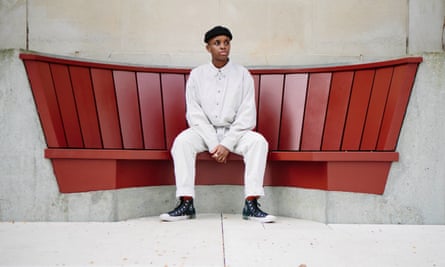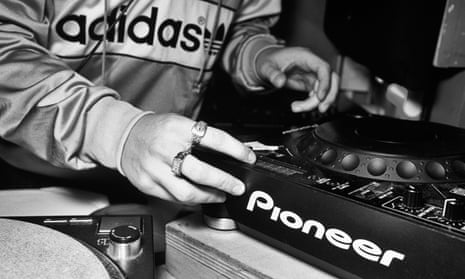When Austen Smart and his brother Scott were kids, they were driven amateur musicians, relentlessly making mixtapes and teaching themselves how to MC. Yet they had no connection to their school’s music department. “In fact, we only went in there for the first time when we went back years later and started teaching DJing, having had a relatively successful career in music,” says Austen.
Over the past five years, the pair have been trying to rectify this disconnect with their education initiative FutureDJs, working to get DJing recognised in formal musical education. Early on, they managed to get DJ decks recognised as an instrument for GCSE assessment, but creating the framework for this to work in practice was a bigger challenge. Last week, they succeeded: FutureDJs and the London College of Music Examiners published a syllabus that offers grade certifications on CDJs (decks for manipulating music from CDs or digital files). This puts them on a par with classical and jazz instruments, and provides detailed criteria for teachers assessing GCSE-level pupils who work with CDJs. The aim, says Sandra Allan of exam board AQA, is “allowing more accessibility and diversity, giving students opportunity they may not have considered before now”.
Cultural sociologist and theorist Dr Monique Charles suggests that the use of CDJs in grime is every bit as important as early reggae and dancehall’s sound system-building in “shaping our musical soundscapes and musical sensibilities”. She is hopeful that teaching DJing will legitimise this understanding. “Inclusion in the curriculum acknowledges the people and traditions connected to them.” Rising DJ Sherelle, currently a holder of a BBC Radio 1 Residency, says the introduction of the course is crucial. “Someone like myself would have probably found my passion a lot earlier if I was able to mix all my favourite tracks back in school.”

Simon Glenister, CEO of Noise Solution, an organisation that provides musical mentoring for at-risk youths, says there’s an added urgency to the formal recognition of CDJ qualifications “seen through the Black Lives Matter lens”: he describes music education as “one of the most intransigent and colonialised curriculums”. Every participant in his programme is asked what kind of music they want to create. “Of the 800 youths we’ve worked with over the last few years, when asked not one of them has elected to work with western classical music. We should be striving to excite people to learn.”
Yet Xhosa Cole, a former BBC Young Jazz Musician and self-described beneficiary of “probably the high point of music education and outreach in the Midlands”, sounds a note of caution: that if young people are learning about the techniques that underpin grime and hip-hop, they also need to learn about the culture behind it. “Who benefits most?” he asks. Austen Smart says that talking about the roots of dance music genres is the foundation of the Smart brothers’ book, How to DJ. “This is where we start our lessons.”
FutureDJs have had as many applicants for their courses in the week since the syllabus with LCME was published as in the three years since the first recognition of CDJs for GCSE. While the Smarts’ background is as house and techno DJs and producers schooled in Manchester’s clubs, the course is aimed to be flexible and thus inclusive. Any genre is acceptable; pupils’ skills are examined on industry-standard Pioneer CDJs but the techniques in the curriculum were, says Austen, “deliberately written so it could be applied to turntables or any kind of controller”.
Pioneer DJ are providing a pair of CDJs for each school that takes up FutureDJs’ teaching, which now takes place remotely from their virtual studio they built in their hometown of Knutsford. The course is subsidised by FutureDJs’ commercial partners, including Clarion Housing Group and Hadley Property Group, as well as some local youth music services.
They are working with Manchester Metropolitan University to track outcomes and benefits from their courses, and hope to add to the growing evidence base that shows performing electronic music has all the benefits of learning “real” instruments.
“Interestingly,” says Glenister, “neurological research recently confirmed that people’s brains are equally positively stimulated by music if it’s a type they personally identify with – hopefully starting to combat the pernicious ‘Beethoven baby effect’ so beloved of pushy parents.”
